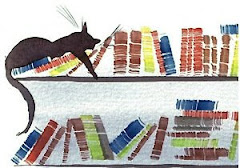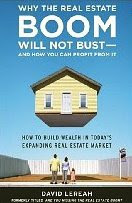 Today, The New Republic's John Judis puts this widely spread sentiment into context: "Obama is the candidate of the new--a "new generation," a "new leadership," a "new kind of politics," to borrow phrases he has used. But, in emphasizing newness, Obama is actually voicing a very old theme. When he speaks of change, hope, and choosing the future over the past, when he pledges to end racial divisions or attacks special interests, Obama is striking chords that resonate deeply in the American psyche. He is making a promise to voters that is as old as the country itself: to wipe clean the slate of history and begin again from scratch."
Today, The New Republic's John Judis puts this widely spread sentiment into context: "Obama is the candidate of the new--a "new generation," a "new leadership," a "new kind of politics," to borrow phrases he has used. But, in emphasizing newness, Obama is actually voicing a very old theme. When he speaks of change, hope, and choosing the future over the past, when he pledges to end racial divisions or attacks special interests, Obama is striking chords that resonate deeply in the American psyche. He is making a promise to voters that is as old as the country itself: to wipe clean the slate of history and begin again from scratch." Judis continues: "early generations of Americans became captivated by the idea that they could create a future without reference to the past. The revolutionaries who fought for America's independence saw themselves as breaking not only with the Old World but with history itself. "The case and circumstances of America present themselves as in the beginning of a world," Thomas Paine wrote in 1792. Thomas Jefferson believed the new nation should regularly renew itself, arguing that, if necessary, "[t]he tree of liberty must be refreshed ... with the blood of patriots and tyrants."
His conclusion: "Today, the conditions seem propitious for another Adamic moment: six years of fruitless war, the looming prospect of another recession, a political system paralyzed by partisanship. Enter Barack Obama, the latest representative of Emerson's party of innovation, radical reform, and hope. He has appropriated these older themes and translated them into the political rhetoric of the early twenty-first century."
This issue of an America always ready to start again, to be "reborn" without reference to the past has been throughly analyzed in the past, at least since the important Lewis's book of 1955 The American Adam. However, it is not clear how much this feeling operates with success in politics: William Jennings Bryan's hopes of "regenerating the Republic" were dashed in 1896.
 Franklyn Roosevelt did prevail in 1932, and was able to found a new political order, but in more recent times the political system appears to be insensitive to any desire for change. In 1968, "change" meant the election of Richard Nixon, a vice-president between 1953 and 1961. In 1980, "change" was the arrival at the White House of Ronald Reagan, an astute repackaging of Barry Goldwater's ideas of 1964. In 1992, "change" allowed the bizarre texas millionaire H. Ross Perot to collect 19% of the popular vote but the Presidency went to Bill Clinton, who -confronted by a hostile Congress- never had a real chance of implementing his ideas. And today, it's not a given that "change" will deliver the White House to Barack Obama, a candidate not really battle-tested against the formidable Republican war machine.
Franklyn Roosevelt did prevail in 1932, and was able to found a new political order, but in more recent times the political system appears to be insensitive to any desire for change. In 1968, "change" meant the election of Richard Nixon, a vice-president between 1953 and 1961. In 1980, "change" was the arrival at the White House of Ronald Reagan, an astute repackaging of Barry Goldwater's ideas of 1964. In 1992, "change" allowed the bizarre texas millionaire H. Ross Perot to collect 19% of the popular vote but the Presidency went to Bill Clinton, who -confronted by a hostile Congress- never had a real chance of implementing his ideas. And today, it's not a given that "change" will deliver the White House to Barack Obama, a candidate not really battle-tested against the formidable Republican war machine.In other words, Americans do crave for change, but their political system seems to be well insulated against it. Maybe we should start thinking less to the candidates and more to the structures that channel political aspirations and movements, or we may wake up on November 5 with the same feelings artfully described by Vachel Lindsay 112 years ago:
Election night at midnight:
Boy Bryan's defeat.
Defeat of western silver.
Defeat of the wheat.
Victory of letterfiles
And plutocrats in miles
With dollar signs upon their coats,
Diamond watchchains on their vests
And spats on their feet.
Victory of custodians,
Plymouth Rock,
And all that inbred landlord stock.
Victory of the neat.
Defeat of the aspen groves of Colorado valleys,
The blue bells of the Rockies,
And blue bonnets of old Texas,
By the Pittsburgh alleys.
Defeat of the alfalfa and the Mariposa lily.
Defeat of the Pacific and the long Mississippi.
Defeat of the young by the old and silly.
Defeat of tornadoes by the poison vats supreme.
Defeat of my boyhood, defeat of my dream.
(From: "Bryan, Bryan, Bryan, Bryan")












